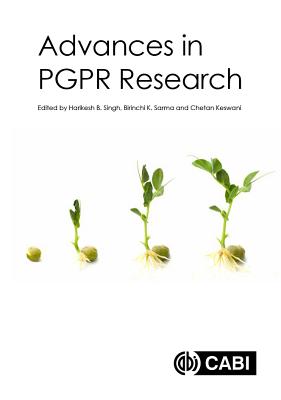Rhizosphere biology is approaching a century of investigations wherein Plant Growth-Promoting Rhizobacteria have attracted special attention for their ability to enhance productivity, profitability and sustainability. This book explores recent developments and global issues in biopesticide research, including extended case studies.
Rhizosphere biology is approaching a century of investigations wherein growth-promoting rhizomicroorganisms (PGPR) have attracted special attention for their ability to enhance productivity, profitability and sustainability at a time when food security and rural livelihood are a key priority. Bio-inputs - either directly in the form of microbes or their by-products - are gaining tremendous momentum and harnessing the potential of agriculturally important microorganisms could help in providing low-cost and environmentally safe technologies to farmers.One approach to such biologically-based strategies is the use of naturally occurring products such as PGPR.Advances in PGPR Research explores recent developments and global issues in biopesticide research, presented via extended case studies and up-to-date coverage of:· Low input biofertilizers and biofungicides used for sustainable agriculture.· Molecular techniques to enhance efficacy of microbial inputs.· Intellectual property issues in PGPR research. Written by an international team of experts, this book considers new concepts and global issues in biopesticide research and evaluates the implications for sustainable productivity. It is an invaluable resource for researchers in applied agricultural biotechnology, microbiology and soil science, and also for industry personnel in these areas.
Get Advances in PGPR Research by at the best price and quality guranteed only at Werezi Africa largest book ecommerce store. The book was published by CABI Publishing and it has pages. Enjoy Shopping Best Offers & Deals on books Online from Werezi - Receive at your doorstep - Fast Delivery - Secure mode of Payment
 Jacket, Women
Jacket, Women
 Woolend Jacket
Woolend Jacket
 Western denim
Western denim
 Mini Dresss
Mini Dresss
 Jacket, Women
Jacket, Women
 Woolend Jacket
Woolend Jacket
 Western denim
Western denim
 Mini Dresss
Mini Dresss
 Jacket, Women
Jacket, Women
 Woolend Jacket
Woolend Jacket
 Western denim
Western denim
 Mini Dresss
Mini Dresss
 Jacket, Women
Jacket, Women
 Woolend Jacket
Woolend Jacket
 Western denim
Western denim
 Mini Dresss
Mini Dresss
 Jacket, Women
Jacket, Women
 Woolend Jacket
Woolend Jacket
 Western denim
Western denim
 Mini Dresss
Mini Dresss






























































